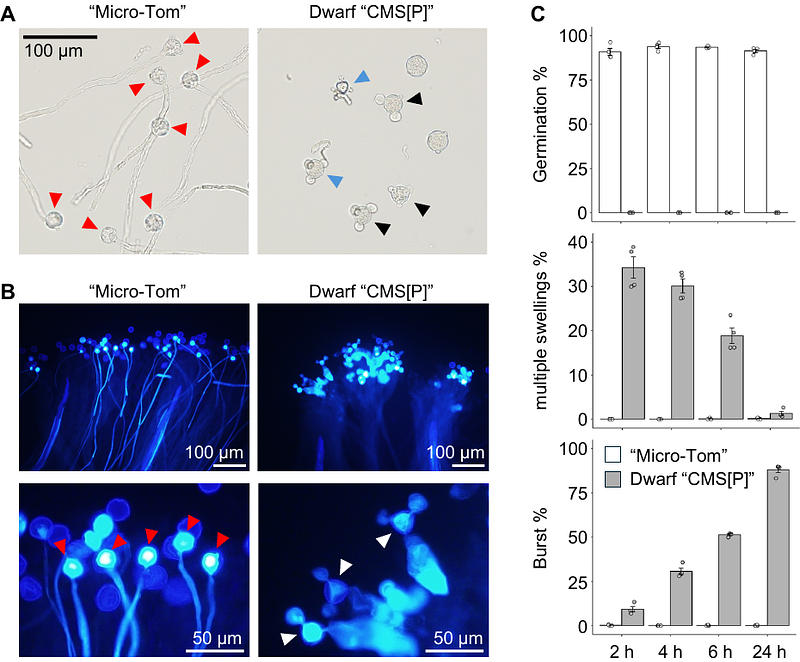Characterization and transcriptome analysis reveal abnormal pollen germination in cytoplasmic male sterile tomato

Characterization and transcriptome analysis reveal abnormal pollen germination in cytoplasmic male sterile tomato
Kuwabara, K.; Ariizumi, T.
AbstractCytoplasmic male sterility (CMS) is a phenomenon resulting from mitochondrial-nuclear incompatibility that is widely used in hybrid breeding. Although the mitochondrial gene orf137 has been identified as the causal CMS gene in tomatoes, its function remains unclear. In this study, we characterized the male-sterile phenotypes and analyzed the CMS pollen transcriptome. Microscopic and calcium imaging analyses revealed that CMS pollen exhibited abnormal germination from multiple apertures, accompanied by elevated calcium concentrations and vesicle accumulation, which are typically observed in pollen tube tips. RNA-Seq analysis revealed 440 differentially expressed genes, including four pectin methylesterase inhibitor (PMEI) genes that were highly expressed in the pollen. PME activity was significantly reduced in CMS pollen, suggesting its association with abnormal pollen germination. ATP and reactive oxygen species (ROS) levels, which are key mediators of mitochondrial retrograde signaling (MRS), remained unchanged in CMS pollen, and the expression of the mitochondrial stress marker AOX1a was not elevated. These findings suggest that orf137 triggers an alternative MRS pathway independent of ATP or ROS, potentially leading to PMEI upregulation and abnormal pollen germination. Our results reveal a previously unrecognized mechanism of CMS-induced male sterility in tomatoes involving nuclear gene regulation through unconventional mitochondrial signaling.